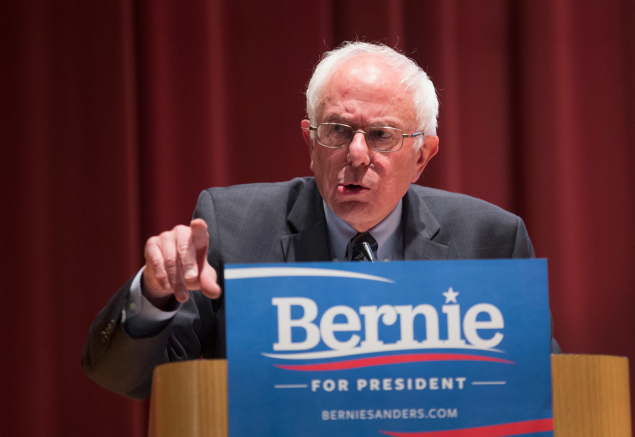
Sen. Bernie Sanders, a Vermont independent who caucuses with Democrats, plans to appear on the Democratic ballot for president in all 50 states, including New York. Some political watchers have wondered, taking into consideration his party status and the Empire State’s stringent elections laws, if this is even possible.
At first glance, Mr. Sanders would seem to have a difficult road ahead of him. Capital New York reported on May 29 that Mr. Sanders would need the permission of the State Democratic Party to run as a Democrat against front-runner Hillary Clinton, a former New York senator, as well as Martin O’Malley and Lincoln Chafee. A section of state election law known as Wilson-Pakula prohibits candidates from appearing on the ballot in a party’s primary unless they are either enrolled members or receive the approval of the party’s committee. (Building on this Capital report, the Observer previously noted that Mr. Sanders would need a Wilson-Pakula to run in New York.)
Assuming the State Democratic Party’s preference for Ms. Clinton–the current chairman, ex-Gov. David Paterson, is a close Clinton ally–Mr. Sanders’ chances of appearing on the Democratic ballot would seem remote. But Mr. Sanders will actually have no problem at all, according to the New York State Board of Elections.
In presidential primaries, national party rules take precedence over state law, said Thomas Connolly, a spokesman for the BOE. As long as Mr. Sanders “espouses party ideals, then actual enrollment is not an issue.”
“Additionally, the process is slightly different in that we do not certify a winner of the Presidential Primary, but rather provide the results to the national party, who in turn uses the results to do various calculations, the number of delegates a candidate would get among them,” Mr. Connolly said in an email.
Another potential presidential contender, former Virginia Sen. Jim Webb, would also not face any additional hurdles in New York. Mr. Webb is a Democrat but Virginia doesn’t have party-based registration.
For Mr. Sanders, the complication of a Wilson-Pakula would come into play for the general election, Mr. Connolly said. Were Mr. Sanders, a clear underdog, to somehow upset Ms. Clinton and win his party’s nomination, he would need Mr. Paterson’s permission to run as a Democrat in November 2016.
This is because of the Electoral College.
“The candidate isn’t actually the person running, but rather their slate of electors is,” Mr. Connolly said. “Normal rules regarding authorizations and acceptances do apply when it comes to electors, so any non-party enrolled electors must receive authorizations and file acceptances.”
It’s highly unlikely, however, that Mr. Sanders wouldn’t be granted the Democratic ballot line if he was the party’s sole hope of keeping the White House.
- Publish my comments...
- 0 Comments
